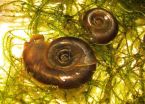INFORMATION:
The study was funded by the National Institutes of Health R01 DK070941, R01 DK084149, R01 MD009055 and 5U19-A1070119.
Co-authors include: Jasmin Divers, Ph.D., co-principal investigator of the study, Michael D. Gautreaux, Ph.D., Jeffrey Rogers, M.D., Alan C. Farney, M.D., Giuseppe Orlando, M.D., Ph.D., Robert J. Stratta, M.D., Lijun Ma, M.D., Ph.D., Carl D. Langefeld, Ph.D., Pamela J. Hicks, B.S., Nicholette D. Palmer, Ph.D., Patricia L. Adams, M.D., Amudha Palanisamy, M.D., Amber M. Reeves-Daniel, D.O., of Wake Forest Baptist; Bruce A. Julian, M.D., Robert S. Gaston, M.D., and Vera Hauptfeld, Ph.D., of University of Alabama School of Medicine; Stephen O. Pastan, M.D., Robert A. Bray, Ph.D., and Howard M. Gebel, Ph.D., of Emory University School of Medicine; Ajay K. Israni, M.D., M.S., and David Schladt, M.S., of Minneapolis Medical Research Foundation; Allan D. Kirk, M.D., Ph.D., of Duke University School of Medicine; and Sumit Mohan, M.D., Ph.D., of Columbia University College of Physicians & Surgeons.
Rapid testing for gene variants in kidney donors may optimize transplant outcomes
2015-03-24
(Press-News.org) WINSTON-SALEM, N.C. - March 24, 2015 - Kidney transplantation outcomes from deceased African-American donors may improve through rapid testing for apolipoprotein L1 gene (APOL1) renal risk variants at the time of organ recovery, according to a new study led by researchers at Wake Forest Baptist Medical Center.
Variation in the APOL1 gene is associated with up to 40 percent of all kidney diseases in African-Americans who undergo dialysis or kidney transplantation, and APOL1 kidney disease risk variants are only present on the chromosomes of individuals who possess recent African ancestry, such as African-Americans, according to the researchers.
The study, published in the March 24 issue of the American Journal of Transplantation, found that renal risk variants in the APOL1 gene in deceased African-American kidney donors were linked with shorter survival of transplanted kidneys.
"Our findings may assist physicians in decisions on which patients should receive higher-risk-for-failure donor kidneys," said Barry Freedman, M.D., professor of nephrology at Wake Forest Baptist and senior author of the study. "This research again demonstrates that APOL1 high-genetic-risk kidneys failed more quickly after transplantation than did low-risk kidneys without two APOL1 gene renal risk variants."
The research team analyzed a total of 675 kidney transplantations from deceased African-American organ donors. Outcomes were assessed in subsequent kidney transplants that were performed at 55 U.S. centers, adjusting for factors known to influence the outcomes of kidney transplantation.
The survival analysis revealed that kidneys from donors with two APOL1 gene renal risk variants failed more rapidly than did those from donors with fewer than two risk variants. The majority of these kidney transplant failures occurred early, many within two to three years after transplantation, the study reported.
Results from the study confirmed that two APOL1 gene variants in donor kidneys were associated with more than a two-fold increased risk of organ failure after transplantation.
"These results warrant consideration of rapidly genotyping deceased African-American kidney donors for APOL1 renal risk variants at the time of organ recovery," Freedman said. "APOL1 genotype data should be incorporated in the organ allocation and informed-consent processes for deceased donor transplantation."
ELSE PRESS RELEASES FROM THIS DATE:
Could a tampon one day help predict endometrial cancer? Mayo clinic researchers says yes
2015-03-24
ROCHESTER, Minn. -- Researchers at Mayo Clinic have shown that it is possible to detect endometrial cancer using tumor DNA picked up by ordinary tampons. The new approach specifically examines DNA samples from vaginal secretions for the presence of chemical "off" switches -- known as methylation -- that can disable genes that normally keep cancer in check.
The finding is a critical step toward a convenient and effective screening test for endometrial cancer, which is the most common gynecologic malignancy in the United States. The results are published in the journal ...
Consumers value handmade products: What's love got to do with it?
2015-03-24
Machine-made products today are often of very good quality, and many are relatively cheaper than their handmade counterparts. But they are missing the key ingredient of "love," according to a new study in Journal of Marketing.
"Handmade products might be perceived to contain and transmit the artisan's "essence" in the form of his or her love for the product in a way that machine-made products cannot," write authors Christoph Fuchs (Technische Universität München), Martin Schreier (WU Vienna University of Economics and Business), and Stijn M.J. van Osselaer ...
Genetic discovery may offer new avenue of attack against schistosomiasis
2015-03-24
CORVALLIS, Ore. - Researchers at Oregon State University have discovered a group of genes in one species of snail that provide a natural resistance to the flatworm parasite that causes schistosomiasis, and opens the door to possible new drugs or ways to break the transmission cycle of this debilitating disease.
Schistosomiasis infects more than 200 million people in more than 70 countries, and is most common in areas with poor sanitation. It can cause chronic, lifelong disability, beginning with gastrointestinal problems and sometimes leading to liver damage, kidney failure, ...
Legally high? Teenagers and prescription drug abuse
2015-03-24
Legal drugs such as OxyContin now kill more people than heroin and cocaine combined. While awareness of the dangers of illegal drugs has increased, many teens are still ignorant of the significant physical danger posed by legally prescribed drugs, according to a new study in Journal of Public Policy & Marketing.
"The CDC has classified the situation as an epidemic," write authors Richard Netemeyer (University of Virginia), Scot Burton (University of Arkansas), Barbara Delaney (Partnership for Drug Free Kids), and Gina Hijjawi (American Institutes for Research). "Prescription ...
Automation offers big solution to big data in astronomy
2015-03-24
MADISON, Wis. -- It's almost a rite of passage in physics and astronomy. Scientists spend years scrounging up money to build a fantastic new instrument. Then, when the long-awaited device finally approaches completion, the panic begins: How will they handle the torrent of data?
That's the situation now, at least, with the Square Kilometer Array (SKA), a radio telescope planned for Africa and Australia that will have an unprecedented ability to deliver data -- lots of data points, with lots of details -- on the location and properties of stars, galaxies and giant clouds ...
Complex genetic ancestry of Americans uncovered
2015-03-24
By comparing the genes of current-day North and South Americans with African and European populations, an Oxford University study has found the genetic fingerprints of the slave trade and colonisation that shaped migrations to the Americas hundreds of years ago.
The team, which also included researchers from UCL (University College London) and the Universita' del Sacro Cuore of Rome, analysed more than 4,000 previously collected DNA samples from 64 different populations, covering multiple locations in Europe, Africa and the Americas. Since migration has generally flowed ...
Researchers find link between genetic variation and alcohol dependence
2015-03-24
Virginia Commonwealth University School of Medicine researchers have discovered a biological clue that could help explain why some drinkers develop a dependence on alcohol and others do not.
The findings move researchers closer to identifying those at risk for addiction early and designing better drug treatments to help people stop drinking.
About 18 million people in the United States have an alcohol use disorder, according to National Institutes of Health statistics. The vast majority go untreated.
"There are few and inadequate pharmacological treatments to help ...
More schools, more challenging assignments add up to higher IQ scores
2015-03-24
More schooling -- and the more mentally challenging problems tackled in those schools -- may be the best explanation for the dramatic rise in IQ scores during the past century, often referred to as the Flynn Effect, according to a team of researchers. These findings also suggest that environment may have a stronger influence on intelligence than many genetic determinists once thought.
Researchers have struggled to explain why IQ scores for developed nations -- and, now, developing nations -- have increased so rapidly during the 20th century, said David Baker, professor ...
A cancer research breakthrough
2015-03-24
Queen's University cancer researcher Madhuri Koti has discovered a biomarker that will help lead to better predictions of the success of chemotherapy in ovarian cancer patients. This discovery could lead to better treatment options in the fight against ovarian cancer.
Biomarkers are an indicator of a biological state or condition.
"Recent successes in harnessing the immune system to combat cancer are evidence for the significant roles of a cancer patient's immune responses in fighting cancer," explains Dr. Koti (Biomedical and Molecular Sciences). "Many of these success ...
Disturbingly little known about microbeads and plastics in the Great Lakes
2015-03-24
National Democratic Party Member of Parliament Megan Leslie is calling on the Canadian government to list microbeads, tiny plastic flakes used in cosmetics, as a potential toxic substance. Health Canada claims the beads are safe for use as an additive, but Leslie says they pose a danger to the aquatic environment.
Researchers at the University of Waterloo are warning that microbeads and plastic debris of all sizes could be a bigger environmental problem for the Great Lakes than previously thought.
"We know more and more about ocean plastics, but, paradoxically, we have ...

